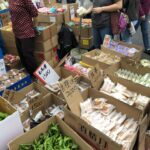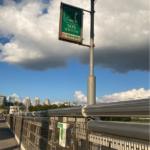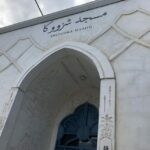Society for East Asian AnthropologyJohn OstermillerMarch 28, 2025 Read the article on Anthropology News Migration is not just about “getting there” but also “making it.” What does it feel like when you can’t fit in your host society as the “right” kind of migrant? For countless Muslim migrants, Japan represents opportunity and a chance for upward […]

Ambiguous Signaling: Filtering through Race and Language
Society for East Asian AnthropologyPatty LanJuly 1, 2025 Read the article on Anthropology News On the hunt for mooncakes for the Mid Autumn Festival in Seoul’s Daelim. Credit: Patty Lan One day while taking the train in Seoul, two young Chinese girls were chatting in Cantonese, much to my excitement. It had been so long since […]
Design SEAA’s logo (25th anniversary)
Calling all creatives in our midst! Help us celebrate SEAA’s 25th anniversary by designing its logo or some sort of visual representation of us. In all of its 25 years, SEAA has had no official logo. YOU can help change that! CHALLENGE: design a logo that represents the Society for East Asian Anthropology, to be […]
CFP “Signal/Noise” Anthropology News & Society for East Asian Anthropology (SEAA)
Hello all, The Society for East Asian Anthropology’s (SEAA) column in Anthropology News is excited to invite abstract submissions for this quarter’s theme, “Signal/Noise.” As a section of Anthropology News (the American Anthropological Association’s member magazine), we select pieces to be published on its online forum, corresponding to themes chosen by AN as well as […]
SEAA Highlights from the 2024 Business Meeting
Society for East Asian AnthropologyJieun Cho and Aaron SuJanuary 10, 2025 On November 21, 2024, SEAA members gathered in Tampa for our annual Business Meeting, where the Board and section members reviewed this year’s activities, announced new board members, and awarded book and paper prizes. Francis L.K. Hsu Book Prize Committee Members: Christine Yano (chair), […]

Practicing Self-Care Beyond Self
Creative care practices from “suicidal” women in South Korea shifts our focus from viewing these individuals purely through the lens of their suffering towards recognizing their unique capabilities and resourcefulness.

